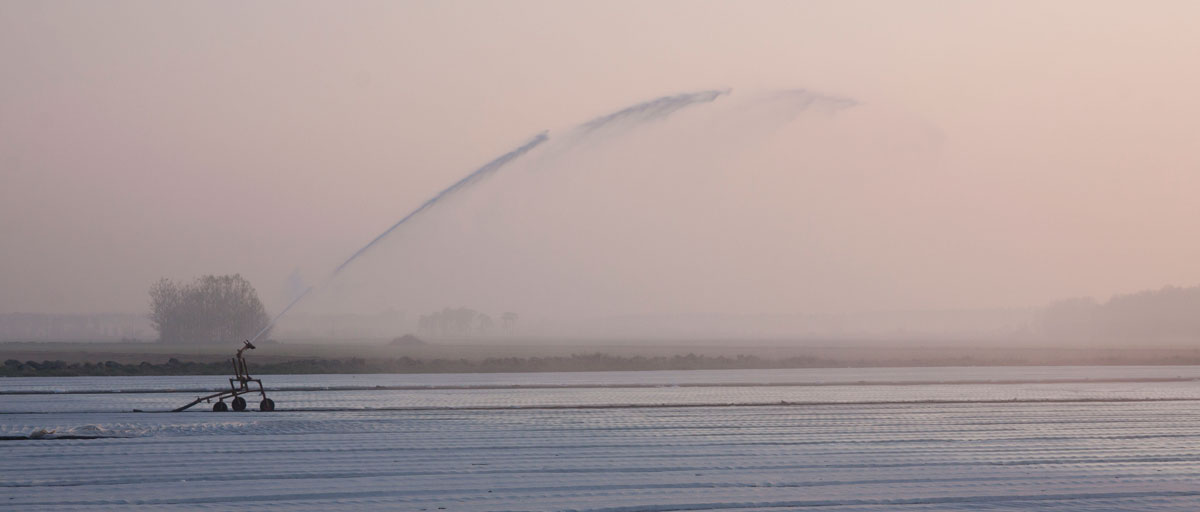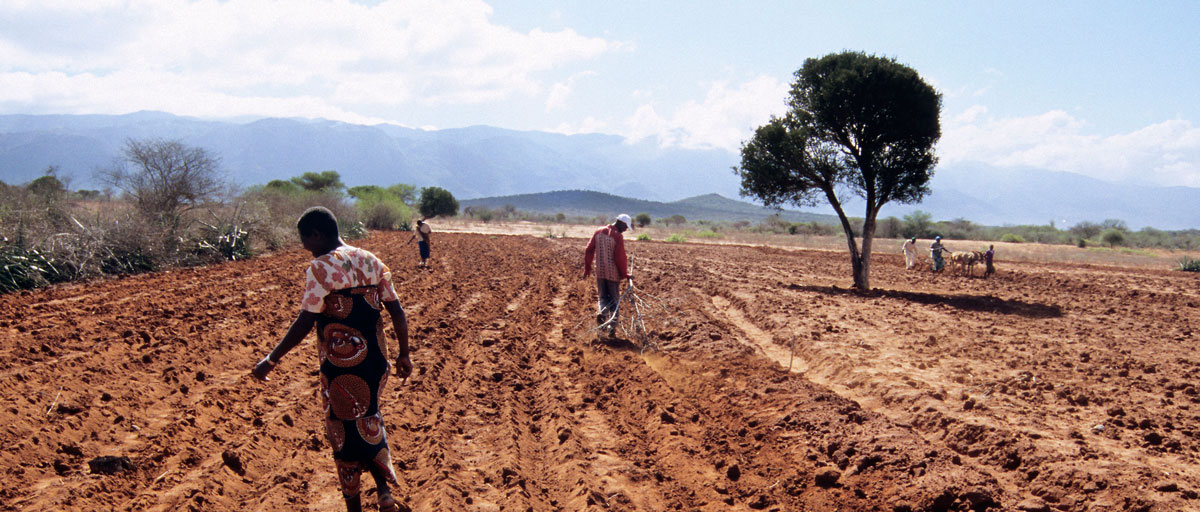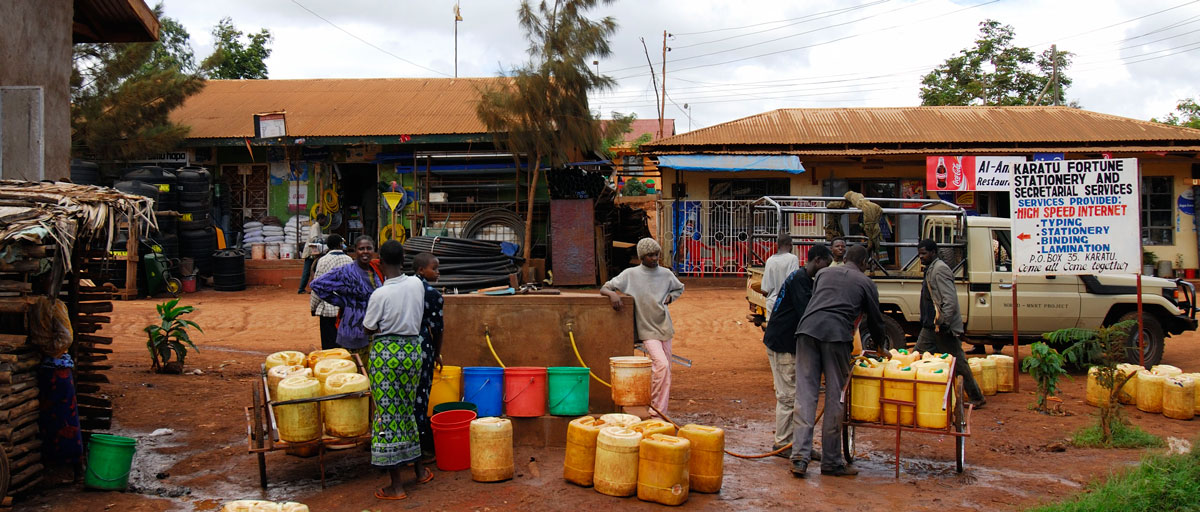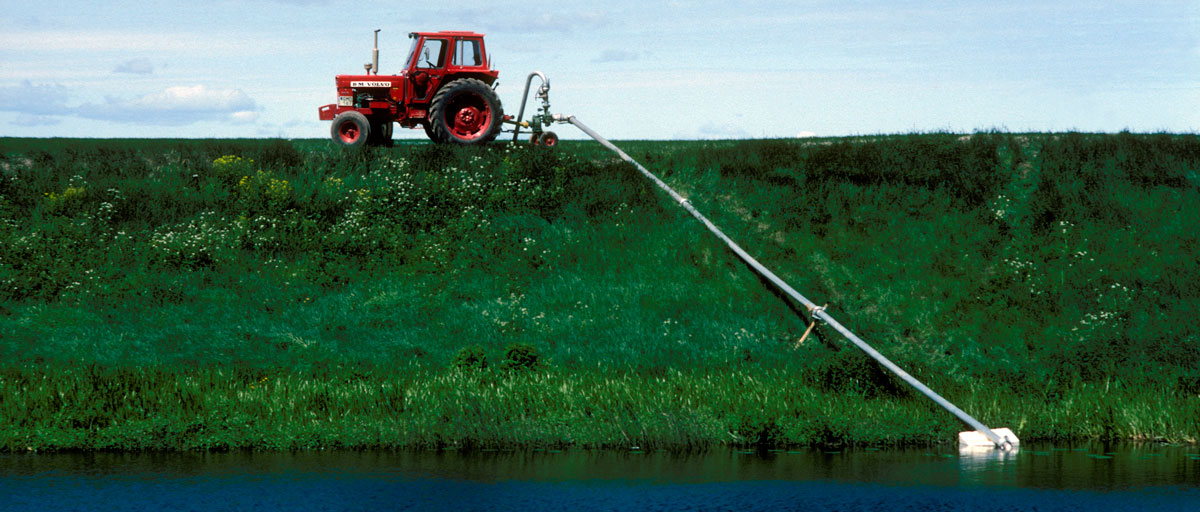
A new study argues that integrated crop water management is a largely underrated approach to reduce undernourishment and increase climate resilience of smallholders. Optimizing rain use and irrigation could substantially increase global food production. Photo: H. Cronert/Azote
Bildtext får vara max två rader text. Hela texten ska högerjusteras om den bara ska innehålla fotobyline! Photo: B. Christensen/Azote
Water management
Halving hunger
Improved water management could boost agricultural yields and halve global food gap by 2050
- There is a lack of institutionalized crop water management targets in the recently passed Sustainable Development Goals
- Crop water management is a largely underrated approach to reduce undernourishment and increase climate resilience of smallholder
- The study took into account a number of different ways to improve water management, from low-tech solutions for smallholders to industrial sized innovations
Optimizing rain use and irrigation could substantially increase global food production. Systematically applied this could actually halve the global food gap by 2050, according to a study published in Environmental Research Letters by a group of researchers from Germany, Kenya, Australia and Sweden.
Centre director Johan Rockström is one of the co-authors:
"Water management is key for tackling the urgent global sustainability challenge. It has been an issue in many local and regional studies and its effects on farm level have been well demonstrated, but has not been thoroughly analysed at the global scale before,” he says.
Global potential
The study concludes that the recently adopted Sustainable Development Goals (SDGs) – while stipulating sustainable agriculture among all nations – need to be based on more evidence on how to achieve such large system changes, and water needs to be central in the analysis.
"Since we are rapidly approaching planetary boundaries, our study should indeed draw the attention of decision-makers of all levels to the potential of integrated crop water management," says Johan Rockström.
In a water management scenario, the researchers call ambitious, global kilocalorie production could rise by 40%, while according to UN estimates roughly 80% would be needed to eradicate hunger by the middle of this century. But even in less ambitious scenarios, results show that integrated crop water management could make a crucial contribution to filling the plates of the poor.
"Crop water management is a largely underrated approach to reduce undernourishment and increase climate resilience of smallholders"
Jonas Jägermeyr, lead author, Potsdam Institute for Climate Impact Research
Large yield increase potential
The researchers have run comprehensive biophysical computer simulations, constraining these in such a way that croplands do not expand into forests and no additional water resources are needed.
As it is a global study, it provides detailed vegetation dynamics and water use effects in river basins – certainly too coarse to simulate farm-level conditions but suited to identify regional hotspots. For example, the yield increase potential of crop water management is found to be particularly large in water-scarce regions such as in China, Australia, western US, Mexico, and South Africa.
Assessing the potential is, however, tricky. If upstream farmers reroute otherwise wasted water to increase irrigation and production, less water returns to downstream users and consequently this can affect their production. So, even though the overall production might increase, distributional challenges remain. Moreover, a lot of local government regulation and incentives, such a micro credit schemes, are needed to put crop water management into large-scale practice, the authors conclude.
The study took into account a number of different ways to improve water management, from low-tech solutions for smallholders to industrial sized innovations. Water harvesting, by collecting excess rain run-off for supplementary irrigation during dry spells, is one example. Mulching is another option, meaning that soils get covered either with crop residues, reducing evaporation, or alternatively using huge plastic sheets. Finally, a major contribution to the global potential is upgrading irrigation to drip systems.
Considering the potential of such improved water management the authors conclude that it is surprisingly absent in the discussions on how to reach the SDGs.
"Although sustainable intensification appears high on the policy agenda, there is a lack of institutionalized crop water management targets. In fact, such targets are outright missing from the recently passed Sustainable Development Goals and from the supporting literature," they write.
Countering climate change impacts
Considering the on-going climate changes, water management becomes increasingly important to reduce food risks. The reason is that global warming is likely to increase droughts and change rainfall patterns, so water availability becomes even more critical than before.
Assuming a moderate carbon dioxide fertilization effect – plants take up carbon dioxide and could hence benefit from higher concentrations in the air – the study shows that water management could counterbalance a large part of the regional warming impacts on farming.
Yet if greenhouse-gas emissions from burning fossil fuels are not reduced at all, in a business-as-usual scenario, water management will clearly not suffice to outweigh the negative climate effects.
Jaegermeyr, J., Gerten, D., Schaphoff, S., Heinke, J., Lucht, W., Rockström, J. 2016. Integrated crop water management might sustainably halve the global food gap. Environmental Research Letters 11, 025002 [doi: 10.1088/1748-9326/11/2/025002]
Johan Rockström is a Professor in Environmental Science with emphasis on water resources and global Sustainability at Stockholm University, and the Executive Director of Stockholm Resilience Centre. He is an internationally recognized scientist on global sustainability issues, where he, e.g., led the development of the Planetary Boundaries framework.









